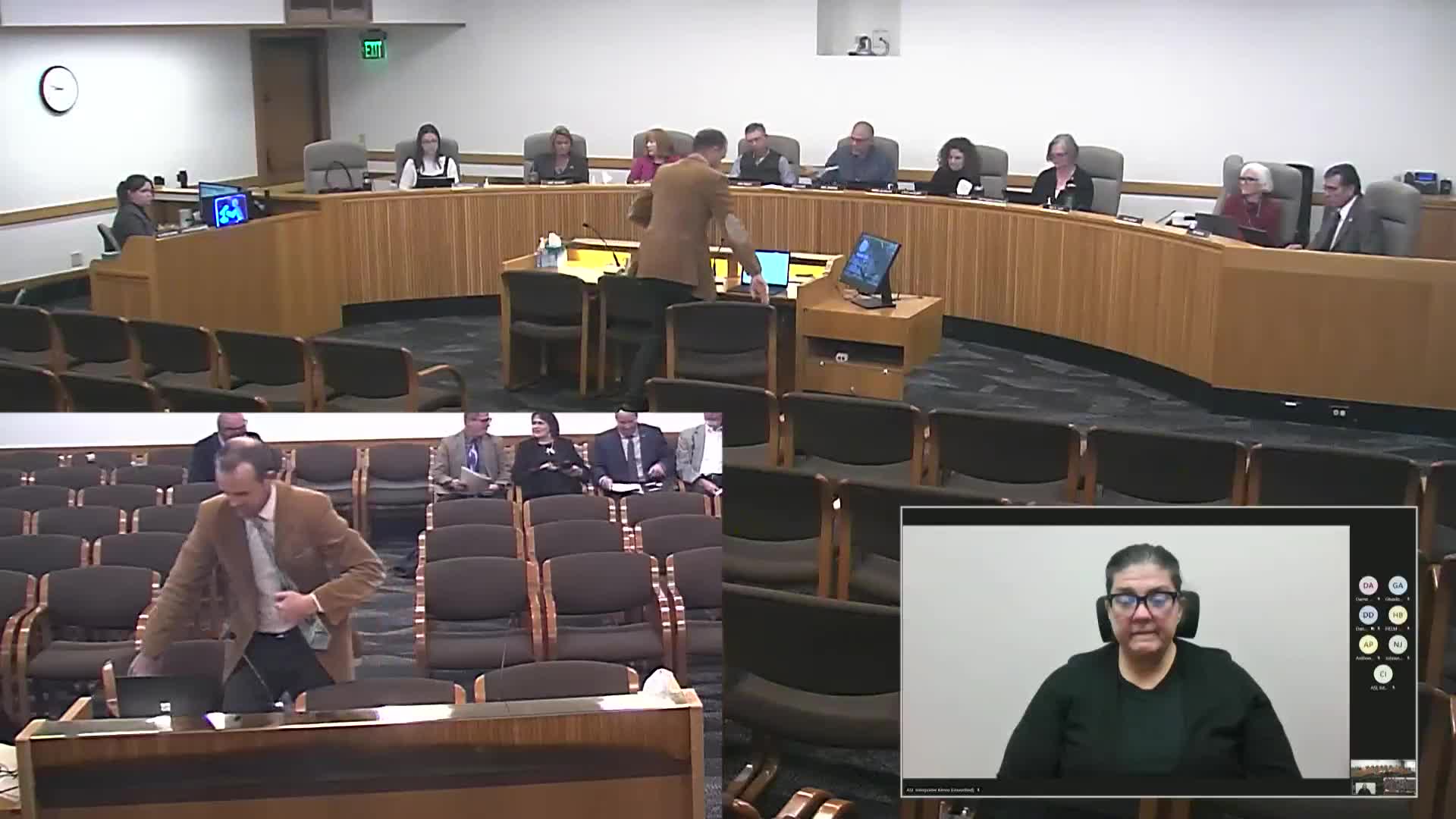PUC seeks authority to order sale of mismanaged private water utilities as last resort
Get AI-powered insights, summaries, and transcripts
Subscribe
Summary
Nolan Moser, executive director of the Oregon Public Utility Commission, told the Senate committee on April 28 that Senate Bill 845 A would allow the commission, after a formal contested process and exhaustion of alternatives, to order the sale of a mismanaged private water utility as a last resort.
Nolan Moser, executive director of the Oregon Public Utility Commission, told the Senate Committee on Agriculture, Land Use, Natural Resources, and Water on April 28 that Senate Bill 845 A would create a carefully circumscribed, last‑resort authority for the commission to order the sale of a private water utility that persistently fails to provide safe, adequate service.
Moser said the proposal grew from a multi‑year regulatory problem involving an owner of several small, private systems near Bend whose poor management caused boil notices and extended service disruptions. He described a process modeled on other states where the commission would complete a full contested case under ORS chapter 183, demonstrate that all alternative remedies were impractical or infeasible, and then could order a sale. The ordered sale would still require the purchaser to be identified by a competitive solicitation and would then proceed through local court condemnation procedures if necessary.
"Only after the commission shows that there is no alternative option ... can we order a sale," Moser said, describing steps the commission would be required to take first: attempts at reorganization, appointment of an independent administrator, soliciting municipal interest and other operational remedies.
Moser and others emphasized the authority would not apply to municipal water providers and would not allow the commission to compel a municipality or any purchaser to buy a system. He said the commission expects the tool to be used rarely and only when customer health and safety is at risk. The commission also acknowledged the process will be costly, including legal costs with the Department of Justice, and that the commission would try to recover expenditures from the utility when feasible.
Sarah Satimo, chief of staff to Senator Jeff Golden, read key statutory language in the bill to the committee, quoting the elements the commission must find before ordering a sale. Her reading highlighted that the bill requires the commission to find violations affecting safety and adequacy, a failure to comply with orders within a reasonable time, inability to furnish safe and adequate service, or an unreasonable risk to public health or safety.
County counsel Anthony Pope of Clatsop County raised concerns about the county being left to take over systems and urged clearer statutory language on the sales process; Moser and committee members said the bill does not give the commission authority to force a county or municipality to acquire a system. Northwest Natural’s Nels Johnson testified in support, saying the bill gives regulators tools to protect customers.
The committee closed the public hearing on SB 845 A. No committee vote was taken at this hearing.
